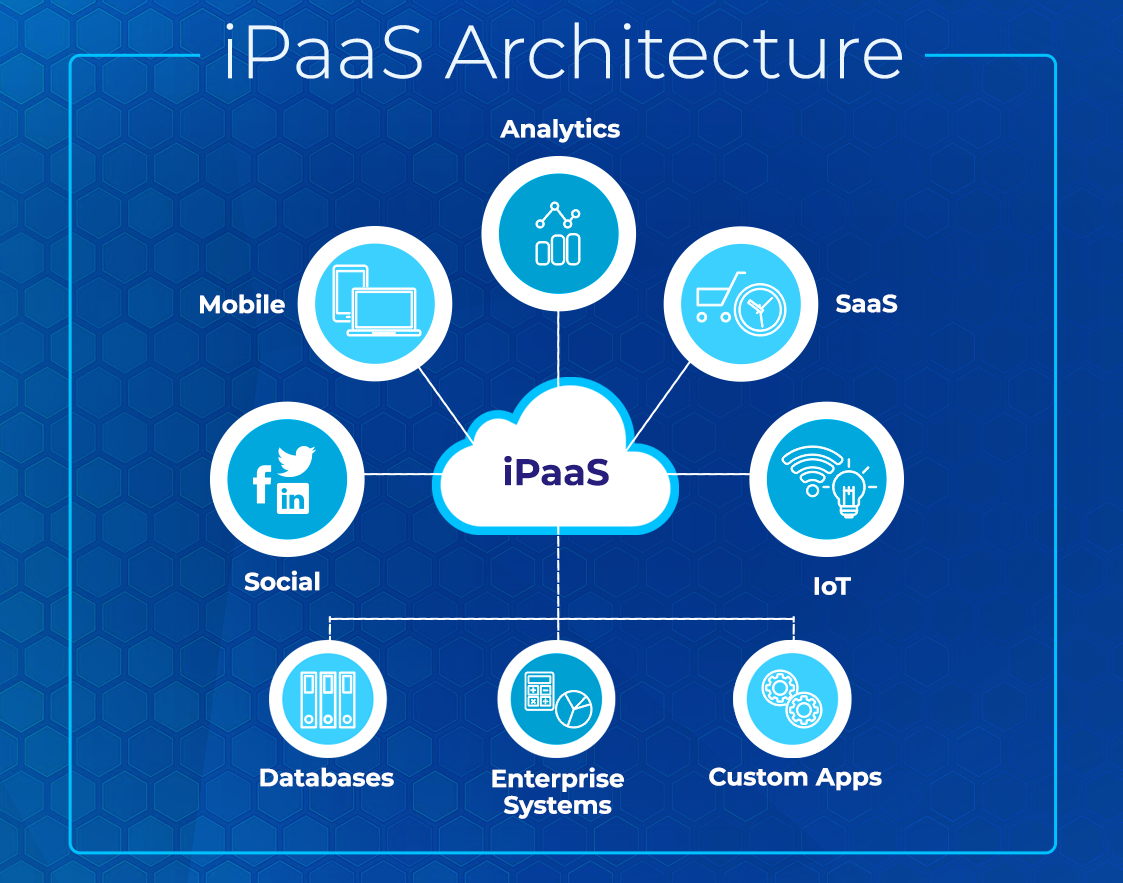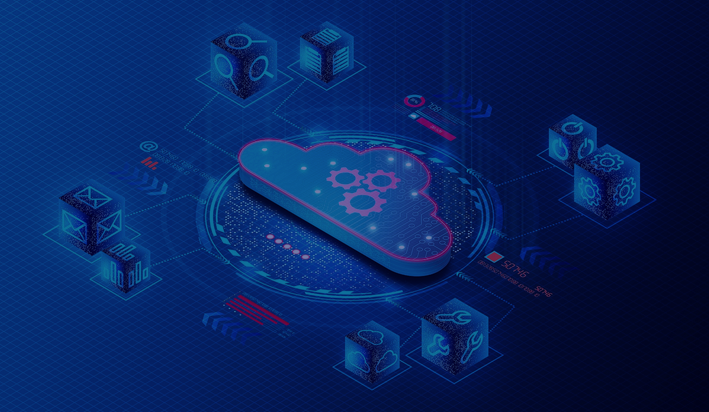Enterprises are becoming highly dependent on multiple software applications that cater to enhance and improve different functional business areas. As they are scaling up, there arises a necessity for enterprises to integrate them to achieve a holistic advantage. This is where the iPaaS solution comes into play. Let’s understand what iPaaS is, what it does & how it helps enterprises.
What is iPaaS?
The IPaaS meaning is integration Platform as a Service (iPaaS) is a cloud solution that helps enterprises unify their software applications and integrate data sources seamlessly, regardless of their environment. iPaaS offers a suite of automated tools to develop, execute & manage integration flows across the applications. It features a drag-and-drop UI that enables non-technical individuals to integrate applications by just knowing the business process.
iPaaS Architecture

Key features of iPaaS
- Virtual Infrastructure Management
- Data Warehousing & Integration
- Endpoint Connectors
- Low-code Environment
- Lifecycle Management
- Data Governance
iPaaS vs ESB
ESB (Electronic Series Bus) is a sort of iPaaS predecessor. It is a middleware meant for on-premise & legacy applications, focusing on integration & data distribution. As cloud transformation widens, iPaaS is replacing ESB with advanced capabilities like scalability & multi-tenancy.
PaaS vs iPaaS
PaaS is a cloud-based environment with toolkits to develop applications, where the cloud provider provides underlying infrastructure – Operating System, server, memory, database & network. iPaaS is a cloud middleware platform mainly for integrating multiple applications & data sources.
Enterprise iPaaS Benefits
Enterprises can experience remarkable benefits in multiple areas by accommodating iPaaS in their digital ecosystem. Here are a few such benefits of using iPaaS for enterprises integration platform as a service(iPaaS).
Automatic API Generation
iPaaS platforms simplify the API creation process by offering a no-code interface with pre-built connectors & maps. iPaaS helps in big for associates from a non-technical background to connect multiple business applications & attain valuable insights on the way easier approach.
B2B Data Connection
Third-party systems in a business ecosystem, such as partners and vendors, can be integrated agilely With the “horizontally flexible” capability of iPaaS. This increased visibility provided by iPaaS tools makes stakeholders well-informed about the business counterparts & make strategic decisions.
Big Data Integration
iPaaS assists in harnessing enterprise-wide data by orchestrating complex data management and pipeline operations. In this way, an integration platform as a service can aid data-centric enterprises in expediting their overall data operations to support their business initiatives.
IoT Integration
iPaaS empowers IoT networks to collect, process & transmit real-time data across IoT endpoints & applications. Enterprises striving to provide smart & connected experiences would best leverage the iPaaS platforms to enrich their IoT ecosystem.
Hybrid Cloud Integration
iPaaS enables enterprises to have efficient business processes & reduced operation overheads by integrating on-premise and cloud applications. Businesses can also scale as per need with centralized monitoring & automation capabilities with the help of iPaaS.
Advanced Cloud Analytics
iPaas eliminates data silos and consolidates multiple data resources to oblige enterprises in their analytics initiatives. And the majority of iPaaS platforms provide interactive analytics dashboards that help enterprises to be in the know of important KPIs for the business.
Top iPaas Vendors
There are many iPaaS vendors in the market to choose from, and here are a few mentions of top vendors from the Gartner® Magic Quadrant™ for Integration Platform as a Service report 2023.
We hope this blog gave you a much-needed overview of iPaaS. Experience the same content in an interactive infographic format & share it with your network easily.






